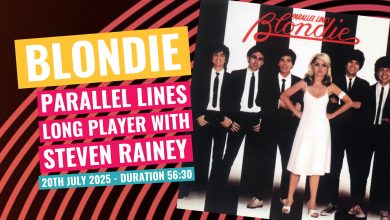Radio
Liz Kershaw
Clem Burke
First broadcast: Sat 14th Oct 2017, 13:00 on BBC Radio 6 Music
Liz gives listeners the chance to show-off their musical knowledge with themed tune suggestions. She is joined by Blondie’s veteran drummer Clem Burke for a Legend In Your Own Lunchtime.




